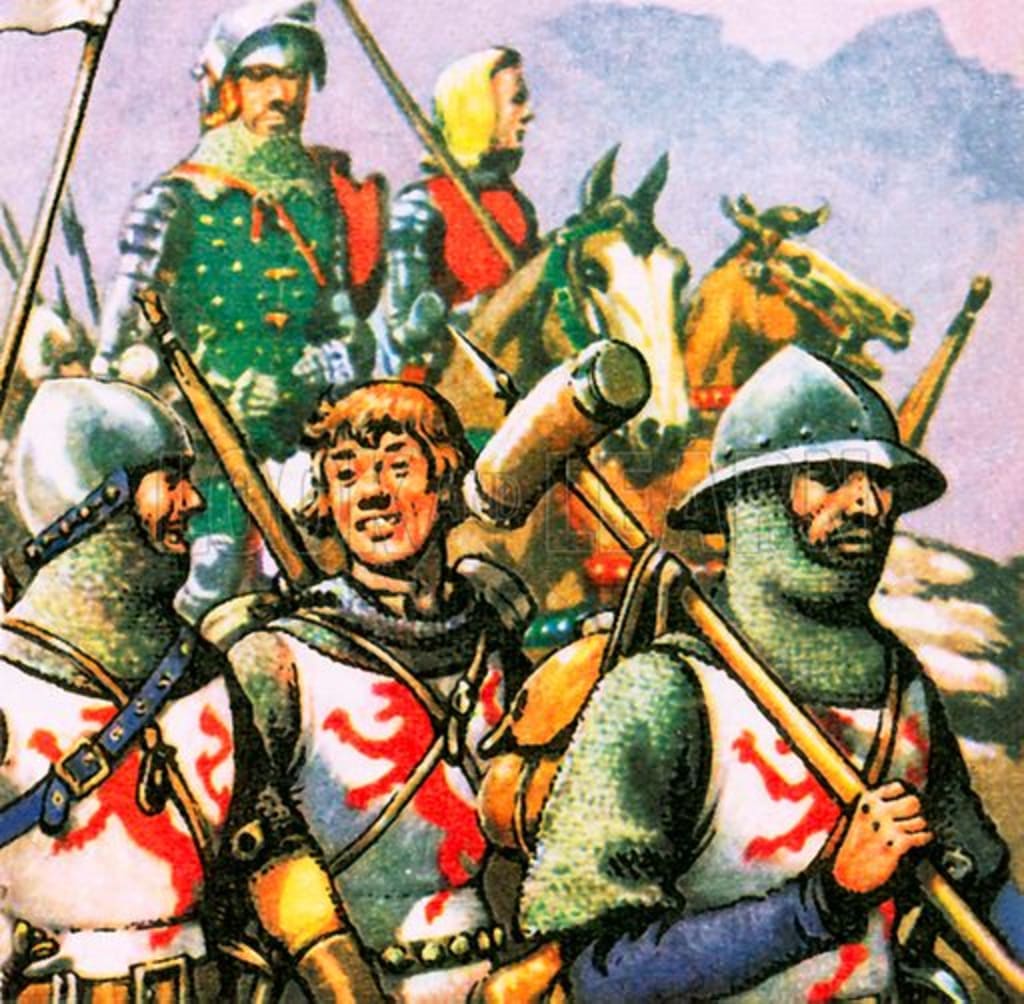Mercenary Warriors of the Italian Renaissance
Unraveling the Intriguing World of the Condottieri - Mercenaries for Hire in the Italian Renaissance

At dawn on July 29th, 1364, John Hawkwood—a seasoned English soldier turned contract mercenary—led a daring surprise attack against an army of sleeping Florentine mercenaries. The enemy commander quickly rallied his men to retaliate, but just as they were ready to engage, Hawkwood's fighters simply turned and walked away. This was not an act of cowardice; it was a calculated strategy. The mercenaries, known as condottieri, had fulfilled their contract's obligations by initiating the skirmish. For Italy's condottieri, war was not about glory or conquest; it was purely a means to secure payment.
Throughout the 14th and 15th centuries, the condottieri reigned supreme in Italian warfare, profiting from and even fueling the region's intense political rivalries. Italy's most powerful regions were governed by wealthy representatives of the Catholic Church or prosperous merchants who thrived on international trade. These rulers engaged in fierce competition for power and prestige, attracting the most talented artists and thinkers to their courts, thereby igniting the cultural explosion known as the Italian Renaissance.
Amidst these cultural pursuits, local rivalries often played out in military conflicts, largely fought by the condottieri. Many of these elite mercenaries were battle-hardened veterans of the Hundred Years' War, hailing from France and England. When the war reached a temporary truce in 1360, some soldiers turned to pillaging France for fortune. The riches they discovered in Catholic churches eventually led them to Italy, where shrewd ruling merchants saw an opportunity to hire these seasoned soldiers as mercenaries. In doing so, they could control the violence while gaining an experienced army without the expense of training and outfitting locals.
The mercenaries, in turn, favored this arrangement for its regular income and the ability to manipulate rival rulers to their advantage. Strict contracts, or condotta, were drawn up, detailing payment divisions, plunder distribution, and non-compete agreements, making war another dimension of business. These contracts specified the number of men each commander would provide, resulting in armies that ranged from a few hundred to several thousand soldiers. Individual mercenaries frequently moved between armies in pursuit of higher payments, with no obligation of ongoing loyalty once their contracts expired.
John Hawkwood's surprise attack on the Florentine condottieri was just one of his many assignments; he fought for both Pisa and Florence, as well as their enemies. Regardless of who contracted them, the condottieri primarily fought for themselves. Their extensive military experience allowed them to avoid unnecessary risks, resulting in battles that were often inconclusive. After all, a lasting peace would mean the end of their lucrative business.
Even when one side achieved victory, enemy combatants were often held hostage and released to fight another day. However, this was not an act of mercy; it was a strategic move to preserve the condottieri's employment prospects. There were moments when these contracts transformed the mercenaries into ruthless killers, as exemplified by the 1377 massacre led by Hawkwood when a famine-stricken town rebelled against the local government.
As the centuries passed, native Italians increasingly replaced foreign condottieri. For young men from humble backgrounds, war-for-profit offered an attractive alternative to farming or joining the church. This new generation of condottieri leveraged their military power to gain political influence, and in some cases, even founded ruling dynasties. Despite their dominance in Italian warfare for nearly two centuries, the condottieri's prowess in close-range combat eventually waned as the large standing armies of France and Spain, along with the naval might of the Ottomans, embraced gunpowder weaponry.
By the mid-16th century, state-sponsored militaries brought Europe into a new era of warfare, leading to the decline of the condottieri's conniving war games. While they had once shaped the course of Italian history, their time as prominent mercenaries was drawing to a close.
The era of the condottieri may have passed, but their legacy lives on, serving as a fascinating chapter in the annals of military history. These contract mercenaries, driven by the pursuit of wealth and power, played a crucial role in shaping the intricate tapestry of Italian politics and warfare during the Italian Renaissance. The condottieri's remarkable rise and eventual fall, filled with tales of cunning tactics and strategic maneuvering, continue to captivate the imagination, leaving behind a rich and colorful legacy that echoes through the annals of history.
About the Creator
Daniel Fuentes Hermosa
"Awakening minds to resist NWO's grip. Self-care as my rebellion - mind, body, soul united. Unbreakable spirit in a chaotic world. #Resilience #TruthSeeker"






Comments
There are no comments for this story
Be the first to respond and start the conversation.